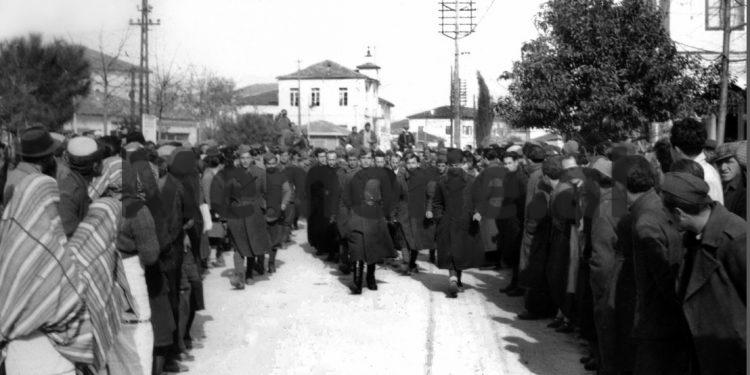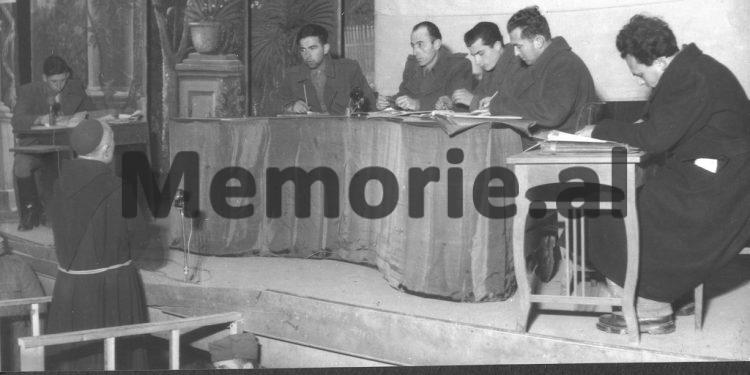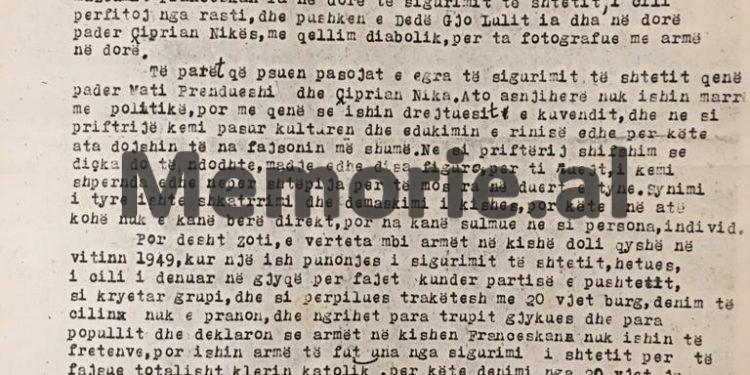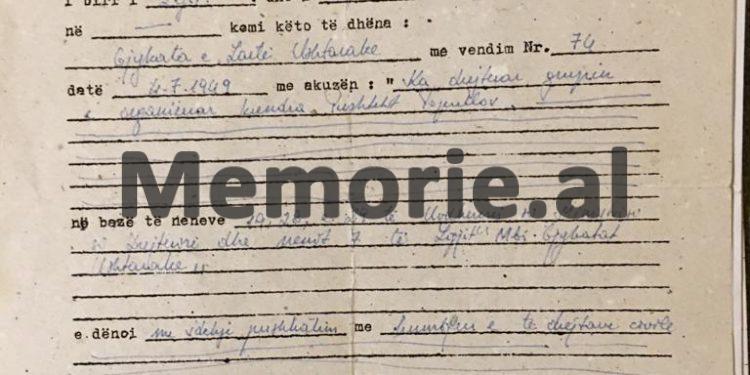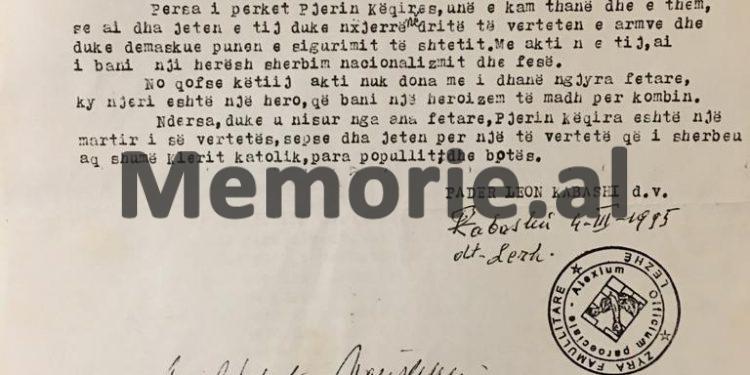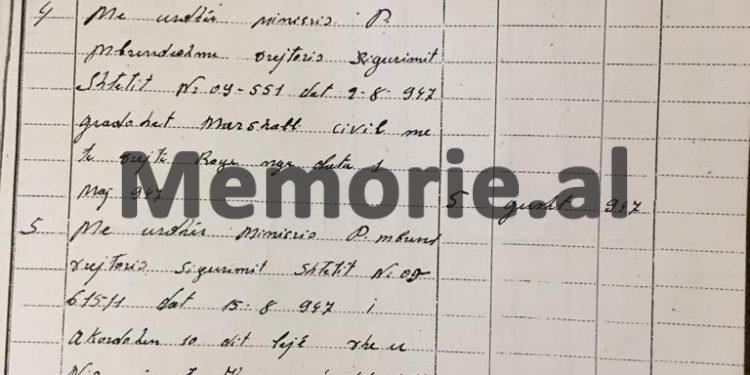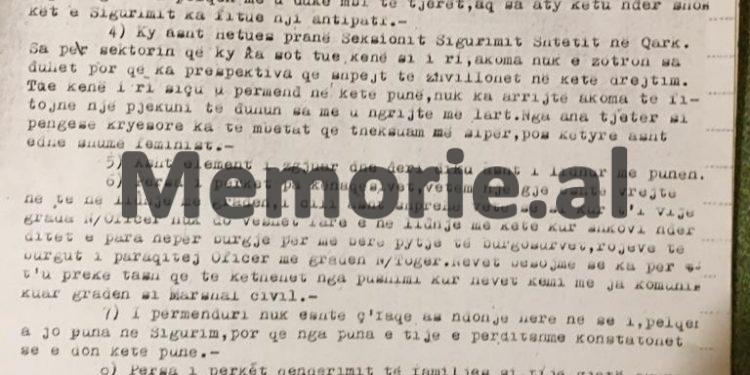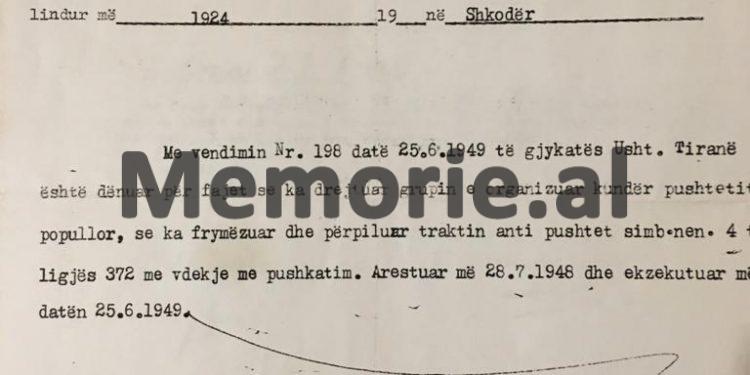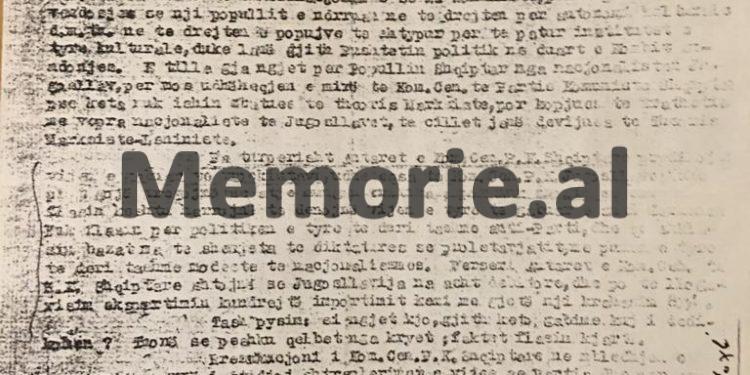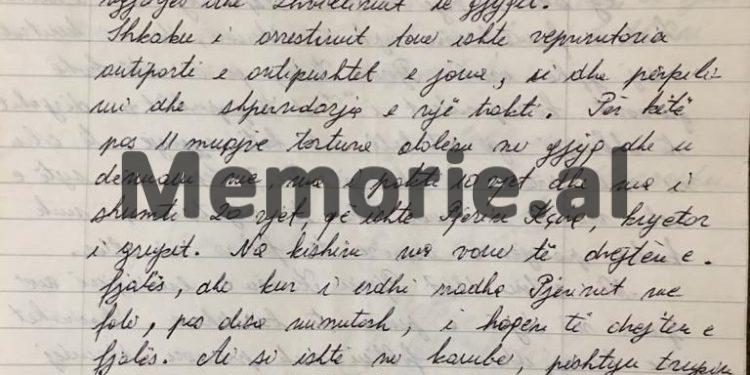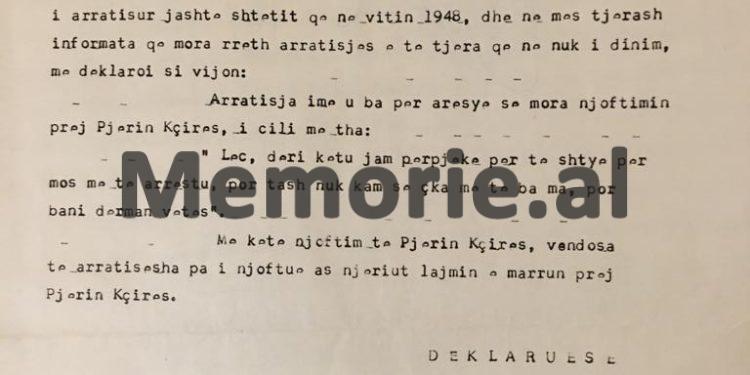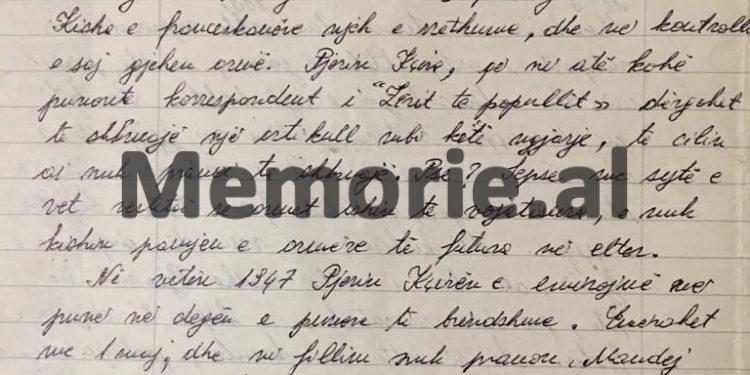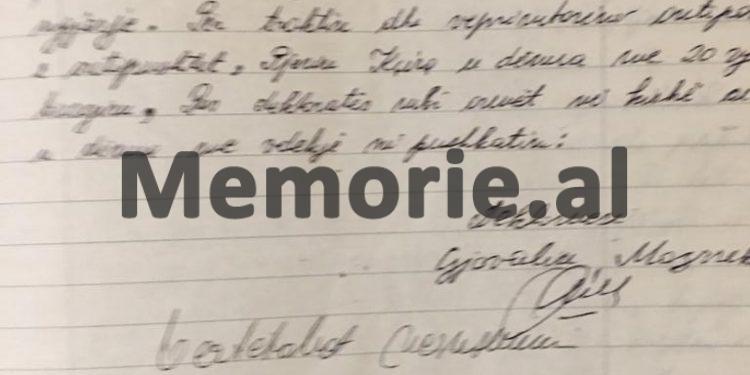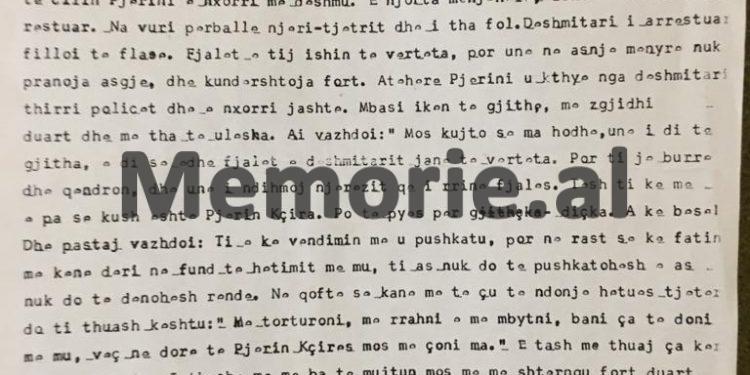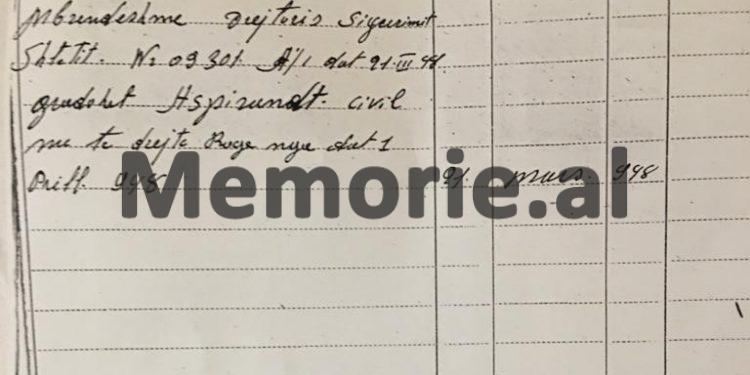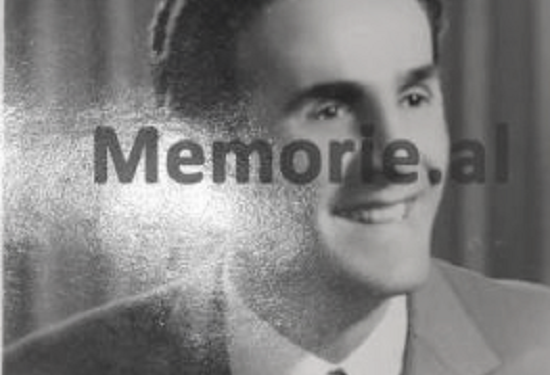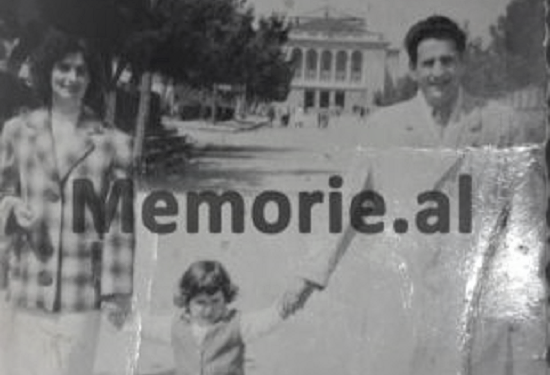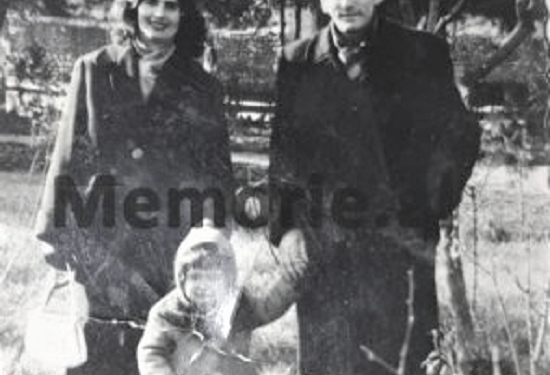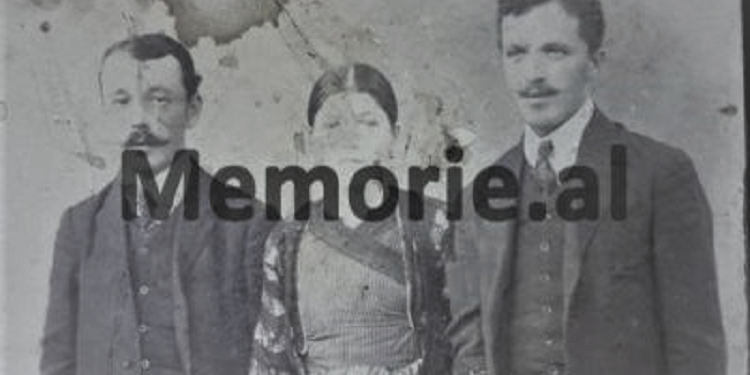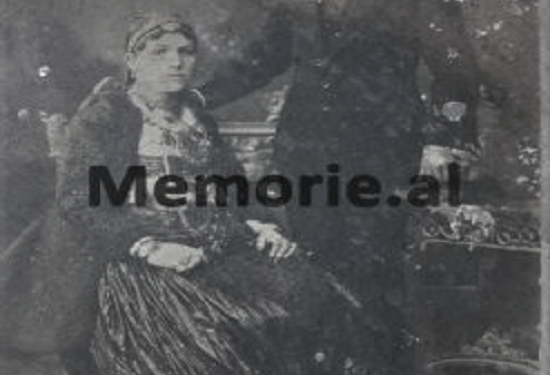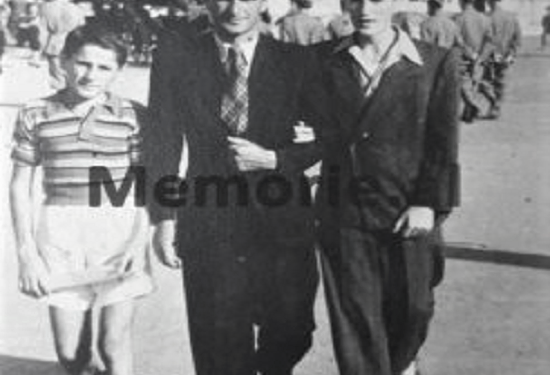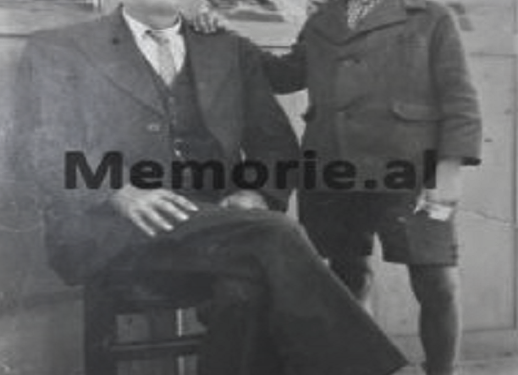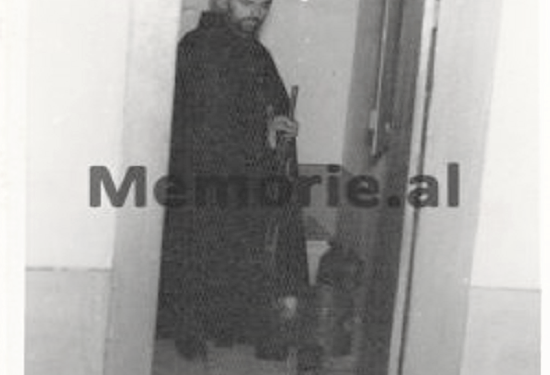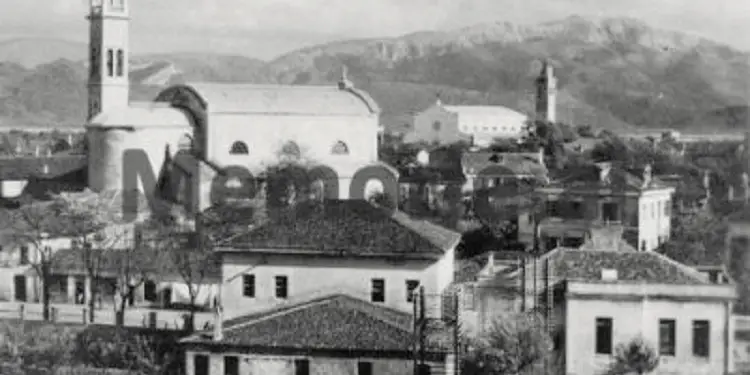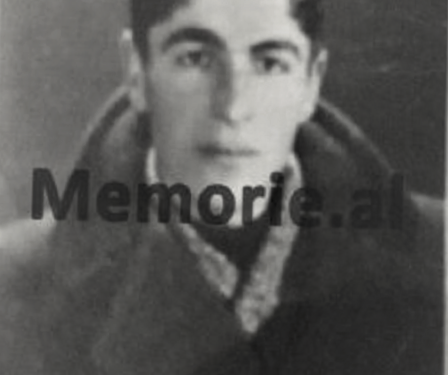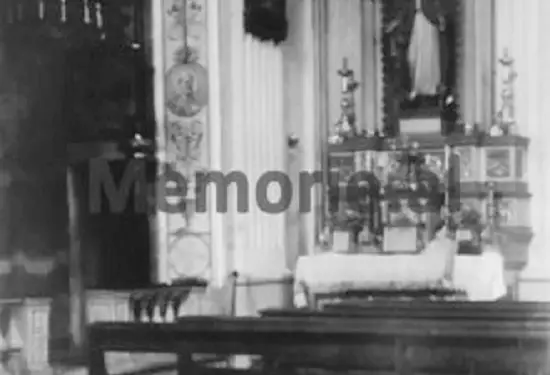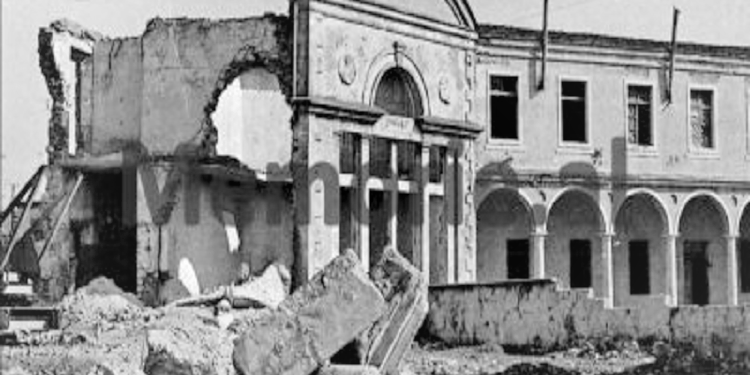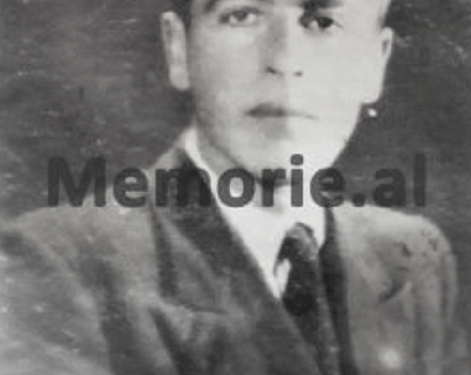Memorie.al publishes an unknown article by the famous poet, researcher, writer, publisher, politician and exponent of the Albanian anti-communist political diaspora in the West, Ernest Koliqi, about Stefan Stiljan Noli, where he after making a brief biography of the origin and The family where Noli grew up has stopped and analyzed some of the brightest aspects of his political-patriotic activity, “the good consequences of which are still felt in the course of Albanian history and are: the establishment in 1909 of the“ Sun ”, A conclusion of the establishment of the pan-Albanian Association“ Vatra ”in Boston, in 1912 in collaboration with Faik Konica, the saving acceptance of the Albanian state in the League of Nations on December 17, 1920, and the creation of the Albanian Autocephalous Orthodox Church. Even if we accept that for the hypothesis that Fan Noli had stains, these three excellent works completely erase him. Of course, to these national and patriotic merits are added those very great ones, such writers who engrave his name with gold letters in the history of Albanian literature”.
Stefan Stiljan Noli, one of the most prominent personalities expressed by the Albanian nation from his own gender, appears as a polyhedral face, i.e. multifaceted, which tires the mind and remember when the moment comes they gave me a synthetic judgment on the role he played in the Albanian world. Whoever lives as it happened to him for more than eighty years and in a historical period the most stormy that humanity has known, easily becomes the object of criticism because such a long life is surrounded by its various stages, with lights and shadows which are probably caused by the surroundings, through which it was traversed, more than a Friday’s will and pre-determined will be brought to me as it was sunk. Like all people with a special value, Fan Noli is honored and despised with perseverance, which often leads to parosism among his praisers and providers.
Noli’s three immortal works
The truth is that the activity of a man who, for eighty-eight years in a row, was given flesh and blood after the realization of an ideal that synthesized in himself religious and national, social and cultural goals, must be put in a straight kandar. Mistakes in the dates of saying that the faults of qi Fan Noli have been able to do with ba, do not detract from the value of the three unique works he performed, the good consequences of which are still felt in the course of Albanian history and are: the founding of the notebook in 1909 “Dielli”, a conclusion of the establishment of the pan-Albanian Association “Vatra” in Boston, in 1912 in collaboration with Faik Konica, the saving acceptance of the Albanian state in the League of Nations on December 17, 1920, and the creation of the Albanian Orthodox Autocephalous Church. Even if we accept that for the hypothesis that Fan Noli had stains, these three excellent works completely erase him. Of course, to these national and patriotic merits are added those very great writers who engrave his name with gold letters in the history of Albanian literature. But here we want to briefly point out the source of his inspiration among the highest lyrical expressions that he gave us and emphasized how he found that inspiring source in the real life of Albania, in the Albanian human source that he investigated and announced in those very few years of living in the land of origin. Fan Noli is also the son of the diaspora: he was born and raised outside the country of the Ancients. This is reflected in all his literary activity. During the eighty years of his life, he spent only three or four years on Albanian soil. And that he understood and felt the need especially as a poet and creator of literary beauty by sucking in the place of the Albanian land doubts Ante’s myth mentions in the lyric dedicated to Bajram Curri: “Neither you are killed nor are you being killed, / Legendary Ante is growing . Who was Anteu and what did he represent in the classical mythology of Hellas? Anteu, the son of the Earth (Gjea), a great and stubborn giant, took the power that no one could defeat, touching the earth (his place) with the soles of his feet. Heraclius found no other way to please him, i.e. to suffocate him, but to hold him by the hand without touching his foot. The symbolic view of the moon of Antoine is clear: the soil of the east, i.e. the place where man comes to life from one blood and one language, gives man moral strength, perishes in him sometimes after the power of the soul. Fan Noli, melt the rare creative tendency, the extraordinary expressive god, into translations (which are exemplary in the field of our letters) more than in the original creations in poetry and in the narrative genre. He did not know enough about the life of the Albanian people. He did not know his experience among the various Albanian districts of the diaspora, considering his own creative powers, enough to include an original work, a poem or rromanx, which would reflect the life of the people, from Albanian blood permeated the light of his occupation. The two epic-lyric poems, dedicated to Luigj Gurakuqi and Bajram Curri, where he masterfully strokes, with inflamed lines, the impressions left by these men, met and acquainted during his short stay in the Albanian homeland, testify to how much His literary works would have been precious, if they had given the opportunity to penetrate better and deeper into the heart of the life of our people.
A look at Noli’s two poems
To briefly analyze in content these two poems that in the Albanian Parnaz reach the most oval peaks of poetic happiness. In the Albanian village of Thrakja, Ibrik Tepe, where he was born at the youngest age, Fan Noli showed the subtle observation ability with which nature had endowed him. He looked around and tried to understand the inside of the shows of the life ahead. Especially as they grew up, they tried to explain to themselves the intrinsic causes that caused the good behavior of human vices, and would appear in the later stages. At that time, a question was surely drawn in the wet mind of the old kalaman: “Why do we speak another language and why are we different from the inhabitants of the neighboring villages?” Which questions, how much do they take into account, do the Arbresh of Italy bring to themselves: “We are Albanians! What is Albania? What qualities allow an Albanian to claim that he is the son of a noble nation? The face that left an indelible impression on Fan Noli during his childhood was Gjergj Kapedani, commander after Nol Kapidani, his grandfather, of the military unit that came out to the Sultan in the army on the occasion of the war. Gjergj Kapidani showed his bravery and that of the Albanians in the fighting alongside the Ottoman army. Fan Noli’s father, Stiljani, also nurtured the passion of church music, that of the cult of heroes. He was immensely admired by Napoleon Bonaparte’s father Skanderbeg. Stiljan’s admiration for Gjergj Kastrijoti passed to his son Stefan, who later made requests among the archives and libraries with documents about him and his time to have mercy on the Albanian man at the Presidency of Kruja. great historical work that we all know. In a mind-boggling guy, prone to the analysis of various causes that stem from the depths of his own soul and that of others, even from the mysterious bloodshed that beats everyone in the sheepfold, it is natural to know the cause of the circumstances. qualify its special human conditions. Gjergj Kapidani spoke to him about the Albanian bravery, his father, Stiljan Noli, took to the sky the actions of Kastrjot. What was the basis of those praises? What kind of yeast was leaking into Albanian blood? What were the special human qualities of the Albanian? Fan Noli in the developments of his nomadic life full of peripetinas such as those of the Homeric Odysseus, informed Albanian men to confirm the claims of Gjergj Kapetani and to be above the Albanian nobility. In 1903, fate threw him into Egypt, and within three years he had relations with valuable men, such as: Spiro Dine, Nikola Naço, Thanas Tashko and Jani Vruhon. He touched on the simplicity of the idealistic nature of these torchbearers of our Renaissance, but he may have thought that they were exceptions. Did the Albanian Nation really deal with the traits dreamed of by patriots? He asked the answer to this question, as we said, in the history of the Albanian centenary of five hundred years in the epic of Gjergj Kastriot. The pages of history confirmed the statements of his father and Gjergj Kapedani. They legislated the enthusiasm with which the patriots mentioned Skanderbeg’s magnificent name, full of renaissance inspiration. But, whose wonderful properties flourished in Skanderbeg, they were still boiling in the great heart of the Albanian nation, and he saw it with his own eyes when in 1921 he came to the land of the Ancients and stayed there until 1924. The human dough from which Skanderbeg came out, and the Celtic generation that followed him in the struggle for freedom, the Vrumulists still alive and all capable of expressing themselves indomitable for the benefit of the nation.
Inspiration for Gurakuqi and Bajram Curri
In Luigj Gurakuqi and Bajram Curri he investigated the essence of the Albanian nobility, the man, which is a writing of wisdom with wisdom, i.e. the synthesis of a bold impulse full of self-denial combined with a gain or conception of life that has the basic pillar of honor and is expressed by a measure of words and behaviors which relies on the sense of law and of conscious people. Trimnija is valuable when used in time and place to produce useful fruits. Says Fishta: “But the wise never rush / from the man and not from the tut”. In Luigj Gurakuqi, Fan Noli informed the man who derives from the Albanian properties inherited from the First and brilliantly shined in the rays of a wide culture. In Bajram Curri, he announced and spread the sound masculine instincts, which with a snake of lightning and a roar of thunder appear suddenly in an attempt for an ideal, without coming out of the lines of wisdom and without deviating from the ancestral heritage of honor and justice. These two unforgettable men inspired Fan Noli’s immortal poems where he exalted the man with a flattering flattering lyrical impulse, the culinary and vital features of the arbnuer chiefs. Remember the verses dedicated to Luigi? “… My mother, I mourn for my brother, / With three bullets we fell… /… That he loved you when they didn’t love you, / That he cried when you laughed / That he wore you when you were naked. / My mother fell a martyr… / Underneath what I tried, / Mouth honey ‘heart-iron-, / Syrgjyn alive’ and exile-dead, / This giant liberator “. And those for Bajram Curri? “… O Bajram bajrak alive, / More nam with blood on his forehead, / At a cave’ of Dragobis. / Rare star of manhood… / With fire the Holy One illuminated this cave, / Until the sky the Castle was raised / For the liberation of Albania / Catacomb of Dragobis ”. It should be noted that the same miserable fate of the three heroes sung by Fan Noli: Skanderbeg, Luigj Gurakuqi, and Bajram Curri, all three merged their lives for an ideal and ended without realizing the desired. The poet cries with tears the Albanian orphaned man. I have known the two Men, sung by Noli, the two honors of the Nation, the bright pillars of the ideal yesterday, today and in the distant past, and I have been fortunate to be in close contact with them. Luigi encouraged me to deal with literature and threw me into the political field in 1923, Bajrami, who lived with his family in a house in Shkodra, kindly talked to me often about national issues. As a small but loyal clerk, I was also a member of the Fan Noli-led government in 1924, and when that government was overthrown, I took the exile as a fan, and lived five years away from my homeland. Therefore, in remembrance of the two great men who are at the forefront of the Olympics of the heroes of the Nation and of the Poet who praised his unparalleled arboreal self, I feel it, for personal and personal reasons. The task is to bow your head in honor of an immense honor./Memorie.al




